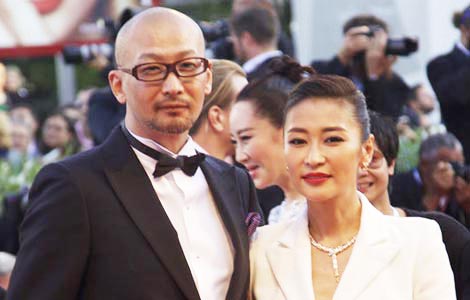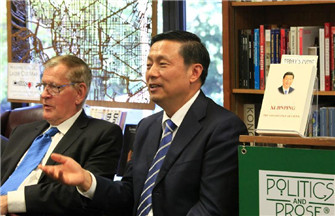Sino-Korean short film festival enters second year
By Wang Kaihao ( China Daily ) Updated: 2015-09-24 08:19:47"Within 30 minutes, you can only focus on one theme, which is the prototype of genre films. Today's filmmakers often want to include too many things into their works, but cinematic classics are always genre films," says Huang, encouraging young filmmakers to stay focused on one idea at one time.
Nevertheless, the festival is more than a newbie's party. It is also an occasion for established Chinese and Korean filmmakers to get together to exchange notes and find potential projects.
Kang, for instance, has two ongoing projects with Chinese studios, but he doesn't reveal details at the festival. He also says that no matter how much film industries in Asia learn about Hollywood's advanced filmmaking, the "spirit" of their respective countries is usually there and ought to be reflected in their films.
According to Kim Dong-ho, former president of the well-known Pusan International Film Festival, China and South Korea are likely to coproduce more films in the future. European and American filmmakers have helped themselves to coproduction ventures with the result that their markets have widely expanded.
China has many cultural and historical stories to tell, which are suitable for adaptation into cinema, he says, adding that South Korea's smart postproduction infrastructure could help.
The festival follows a 2014 agreement between the two countries to enhance cultural ties.
- Experience and Lessons Drawn from South Korea's Financial Liberalization Reform
- Yantai and South Korea enhance cooperation on maritime safety
- Journalists begin interviews on trade between South Korea and Shandong
- China-Japan-South Korea Cultural Exchange Exchange Forum and Think Tank Net held in Jilin
- South Korea's 'Running Man' holds carnival in Shanghai
|
|
|
|
|
|
|
|




















 Raymond Zhou:
Raymond Zhou: Pauline D Loh:
Pauline D Loh: Hot Pot
Hot Pot Eco China
Eco China China Dream
China Dream China Face
China Face






